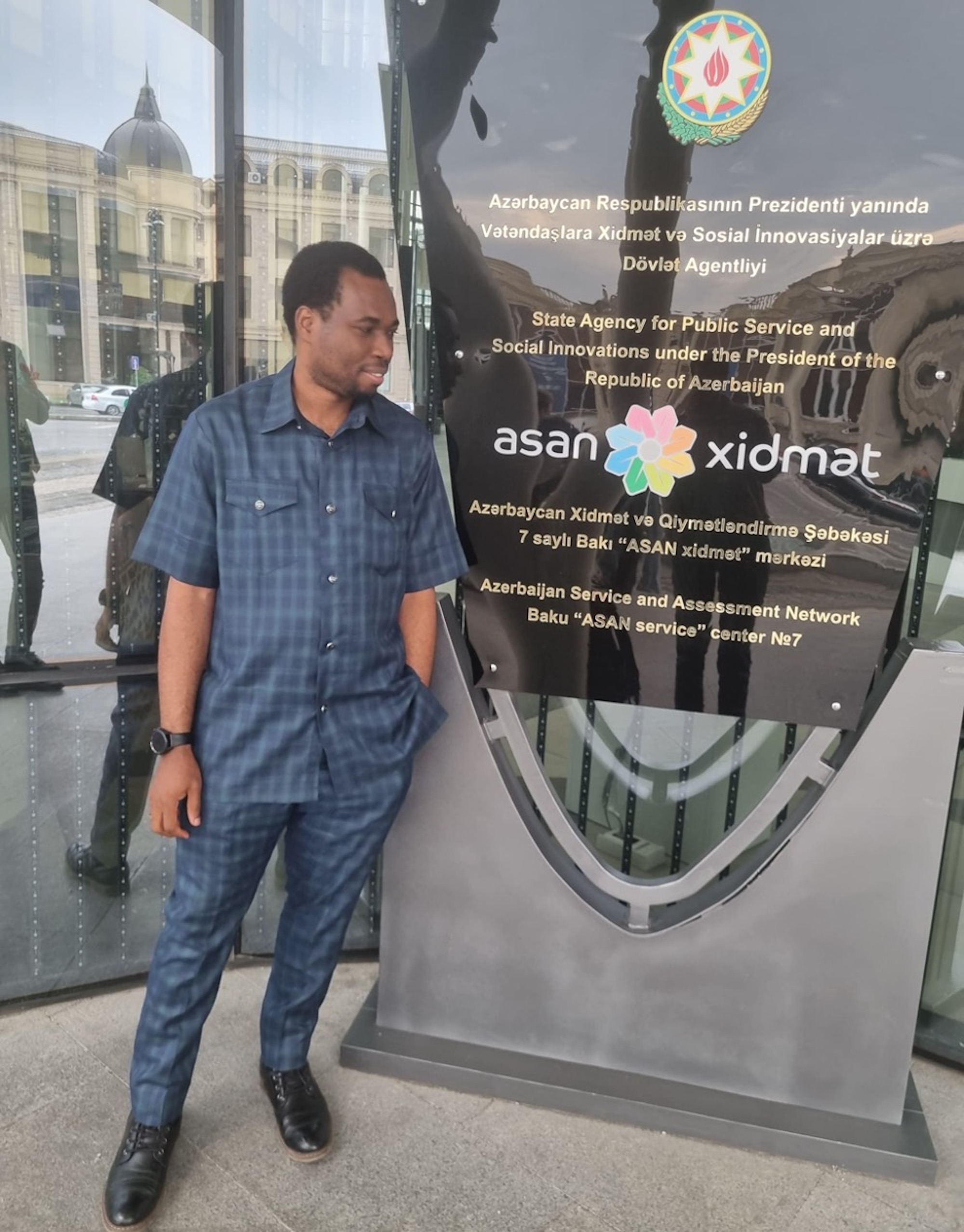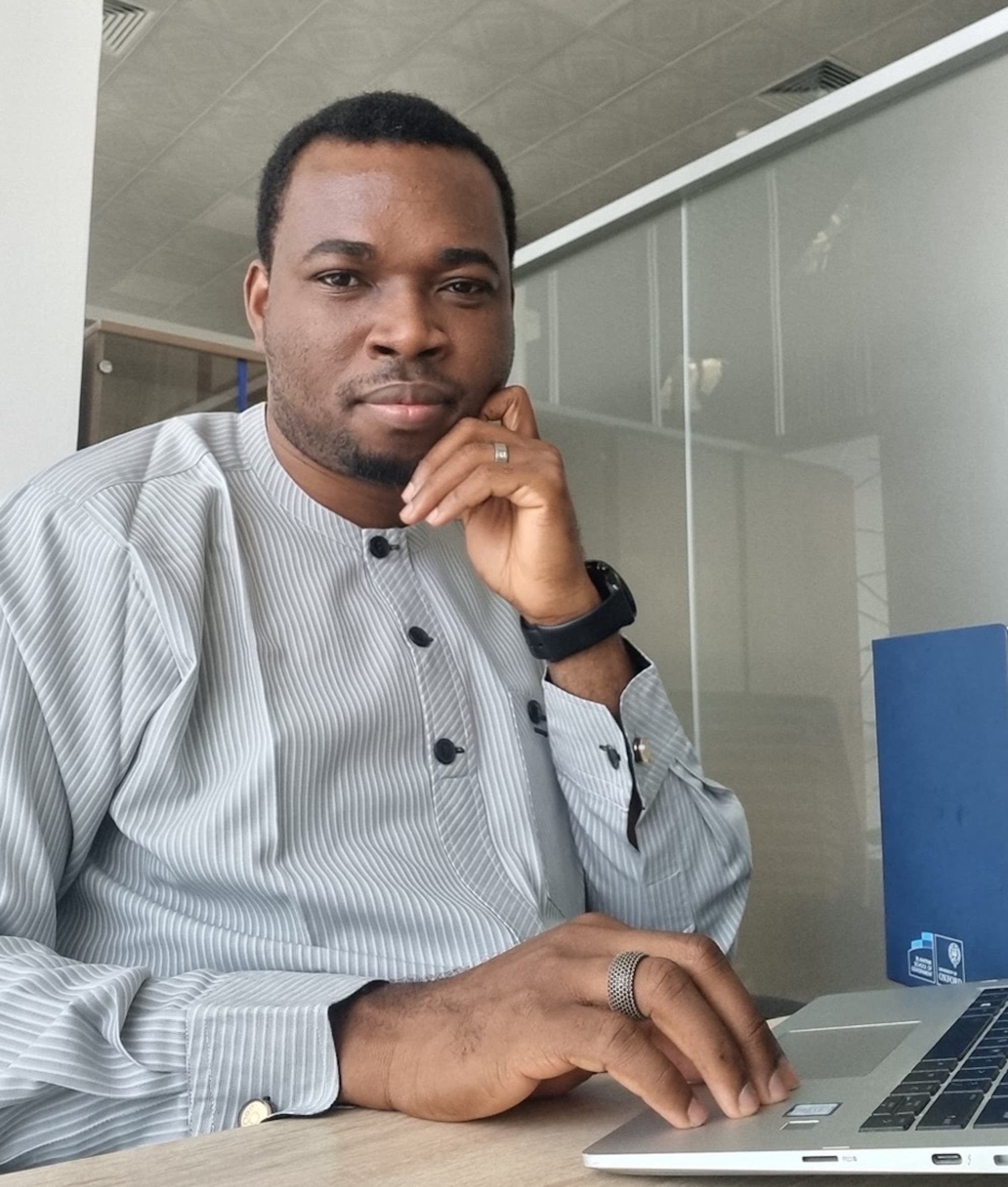Boosting public service delivery and forging global partnerships
MPP student Chinagorom Ajike reflects on his summer project at SAPSSI in Baku, Azerbaijan.

This time last year, I was upbeat and concluding preparations for the one-year intensive Master of Public Policy (MPP) programme at the Blavatnik School of Government.
Since then, I have studied economics, evidence and public policy, philosophy, law and public policy, and the politics of policymaking. I have undertaken an executive programme on cross-sector partnerships, and optional modules in social protection, generative AI as a policy tool and negotiation skills.
Today, I find myself in Baku, Azerbaijan, on a summer placement working with the State Agency for Public Service and Social Innovations under the President of the Republic of Azerbaijan (SAPSSI). This transformational experience has broadened my horizons and provided a platform to apply my academic learning in a real-world setting.
In a bid to address public dissatisfaction with service delivery, SAPSSI introduced the Azerbaijan Service and Assessment Network, ASAN Service, an innovative solution which leverages the public-private partnership (PPP) model to provide a platform for 15 public sector institutions and 30 private organisations to offer over 400 government services fostering cross-sector collaboration and strategic partnerships.
To bring government services closer to the grassroots, 27 ASAN service centres operate across Azerbaijan. The impact of ASAN in enhancing public service delivery for citizens to access government services and its sensitivity to the needs of various social groups has been globally recognised with the United Nations Public Service Award.

During my placement, I have studied the philosophy of the ASAN service model and its operational framework, and gained insights into the role cross-sector collaborations and partnerships play in delivering public sector outcomes.
At the ASAN service centres, I engage in data auditing to identify gaps, suggest improvements and collaborate with colleagues to identify key performance indicators for better public service delivery. This hands-on experience has deepened my understanding of the concept of new public management and its focus on citizen satisfaction.
My stay in Baku has been enriching and transformative. It has allowed me to work alongside Mahammadali Khudaverdiyev, Turana Gasimova, Latif Nabiyev and Ruslan Huseynov, who form part of a dedicated team of professionals passionate about improving public sector administration, collaborations and global partnerships. I have learned the valuable principles of citizen-centric operations, transparency, and efficiency which define the ASAN service.
I have immersed myself in the Azerbaijani culture by interacting extensively with local people and featuring on ASAN radio and TV. I’ve had the opportunity to visit historic sites such as the Baku Old City, Maiden Towers, Museum of Miniature Books and the Baku Zoological Park. Other notable sites that I explored include the Azerbaijani National Carpet Museum, Heydar Aliyev Cultural Centre, Flame Towers and the Astrophysical Observatory located in Shamakhi, a city outside Baku.

The ASAN service model operated by SAPSSI in Azerbaijan demonstrates an innovative public service delivery solution. By mirroring and adapting to local contexts, institutions and governments can address public service challenges and improve citizen satisfaction.
I am grateful to the AIG Foundation, Blavatnik School of Government and SAPSSI for this incredible opportunity!
Chinagorom is an AIG Scholar.

